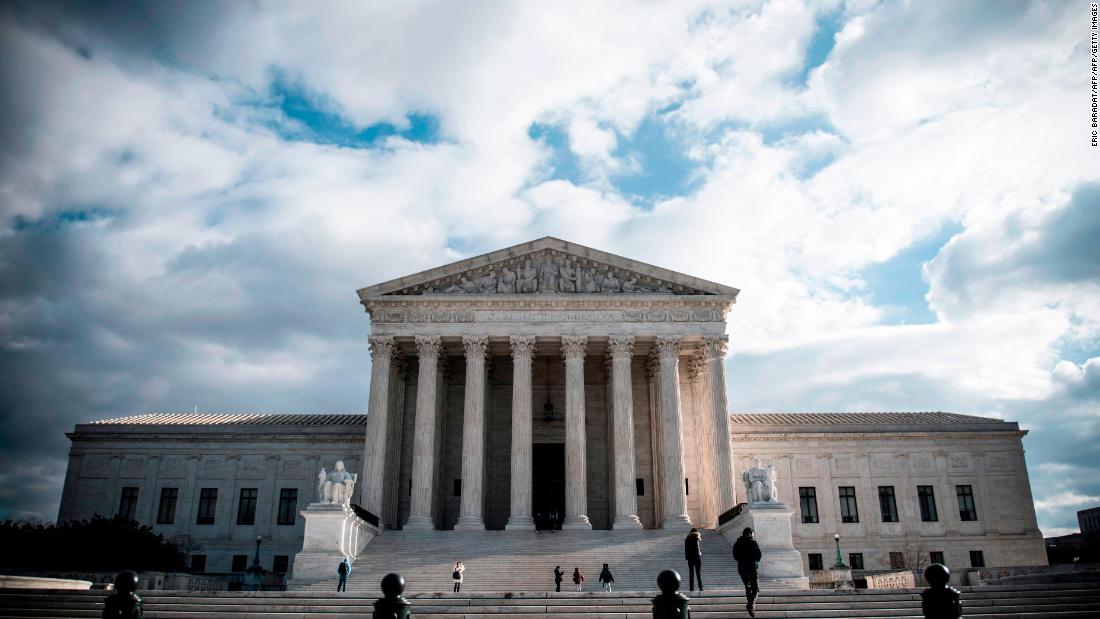
In what could be one of the most consequential rulings of this term, the justices could, for the first time, establish a standard to decide when politicians go too far in drawing lines for partisan gain, or the court could slam the doors shut on such claims of extreme partisan gerrymandering.
"These cases are really about the representation we get in federal, state and local office all across the country," said Justin Levitt, a professor of law at Loyola Law School, who has signed a brief in support of the challengers.
Last term, all eyes were on Justice Anthony Kennedy, who many believed was on the verge -- for the first time -- of articulating a judicial standard that courts could use going forward. He was considered the swing vote. While the conservatives on the bench suggested the issue should be left to the political branches, Kennedy had been unwilling to bar all future claims of injury from partisan gerrymander.
But ultimately the court sidestepped the merits of the cases and Kennedy retired -- dashing the hopes of critics of extreme partisan gerrymandering, who thought he might be their last chance to stop politicians from illegally attempting to entrench power for one party over another.
Before the court now are two cases arising from North Carolina and Maryland. One is brought by Democrats challenging Republican-drawn maps, the other is Republicans challenging a Democratic map. The lower courts struck the maps and provided the justices with several potential tests grounded in the First Amendment, the Equal Protection Clause and other parts of the Constitution to establish a new standard.
"Between these two cases the justices really have all the options on the table to find a path to regulate extreme partisan gerrymanders," Levitt said. "The court has said for a long time that extreme gerrymanders aren't consistent with the Constitution. These cases provide the court with a way to do something about it. "
North Carolina
Rucho v. Common Cause was brought by voting rights groups and Democratic voters, among others, who argue that North Carolina's 2016 congressional districting plan was unconstitutional.
They say the map drawn by Republican legislators amounted to an unconstitutional partisan gerrymander that intentionally diluted the electoral strength of individuals who oppose Republicans.
Allison Riggs of the Southern Coalition for Social Justice argued in court papers that the map drawers "divided clusters of Democrats that could have anchored congressional districts and submerged the fragments within larger masses of Republicans."
Riggs points out that Republicans won 53% of the vote in the 2016 election but they also won 10 of the 13 congressional seats.
Riggs warns the justices that if they don't step in now, the use of politics will only get worse as map drawers rely increasingly on redistricting software that has become more sophisticated and studies show that the ideological gap between Democrats and Republicans in Congress is larger than ever before.
She said that if the Supreme Court rules that the issue must be left for the political branches, the 2016 plan will be the wave of the future.
"In the 2020 cycle and beyond, both parties will emulate -- or exceed -- its abuses, openly entrenching themselves in power using the full array of modern mapmaking technologies," she said.
A lower court ruled in favor of the challengers on equal protection grounds, holding that certain districts discriminated against voters, and that the plan also violated the First Amendment, for punishing individuals based on how they had previously voted.
Paul Clement, a lawyer for North Carolina's Senate Redistricting Committee, argued in briefs that the Supreme Court has tried before to find a judicially manageable standard and has failed, and that the issue should rest with the political branches.
"Courts simply do not have any business making value-laden judgments about how much politics is too much in a process that will never be free of politics," he said.
The other case, Lamone v. Benisek, arises from Maryland. A lower court blocked the map, holding that individuals in the district were retaliated against based on how they had voted, in violation of the First Amendment.
This case was brought by seven Republican voters, who argue that Democratic then-Gov. Martin O'Malley, who was overseeing the redistricting process, took particular aim at the state's 6th Congressional District. "To that end, map drawers methodically dismantled the sixth district, breaking apart large swaths of territory dominated by rural Republicans and replacing them with smaller, densely populated areas dominated by suburban Democrats," their lawyer, Michael Kimberly, argued in court papers.
The officials targeted some 66,000 Republicans in the district and added some 24,000 Democratic voters, therefore swinging the district, according to court documents.
The challengers pointed to O'Malley's own statements, when he said it was "also my intent to create a district where the people would be more likely to elect a Democrat than a Republican."
Maryland's attorney general, Brian F. Frosh, countered that the lower court's standard "fails to meet the challenge of separating permissible political consideration from impermissible, excessive partisanship."
"The record here contains no evidence that any legislators or mapmakers, or the people of Maryland who enacted the 2011 plan ... knew how any of the plaintiffs voted in the past, or tried to punish them for their past voting,"he argued.
The justices should rule on both cases by the end of June.
Bagikan Berita Ini














0 Response to "Supreme Court will hear 2 critical partisan gerrymander cases"
Post a Comment